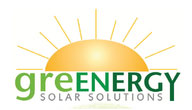1. What exactly is an On-Grid Solar Power System?
- On-Grid Systems, also known as grid-tied systems, are solar power setups that are connected to the local electric grid. They generate power from the sun and use this to power your home or business. If the system produces more energy than needed, the surplus is fed back into the grid, often resulting in energy credits through net metering.
2. What are the benefits of installing an On-Grid Solar System?
- Cost-Effectiveness: Since they don’t require batteries, on-grid systems are generally more affordable to install.
- Net Metering: Excess energy produced can be sold back to the grid, offsetting electricity costs.
- Reliability: They are highly reliable, providing electricity whenever the grid is operational.
3. Who should consider an On-Grid System?
- Ideal for those who live in areas with reliable grid access and are looking to reduce electricity bills and their carbon footprint. It’s perfect for urban or suburban areas.
4. What is an Off-Grid Solar Power System?
- Off-Grid Systems are not connected to the electricity grid and therefore require battery storage. They are completely self-sustaining, drawing their power solely from solar panels. These systems are ideal for remote locations where grid connection is not available or cost-prohibitive.
5. What are the advantages of an Off-Grid Solar System?
- Independence: You are not reliant on the grid, making it perfect for remote or rural locations.
- No Electricity Bills: since you are not using the grid’s electricity, there are any monthly electricity bills.
- Uninterrupted Power Supply: As long as your system is properly sized, you will always have electricity.
6. Who should opt for an Off-Grid System?
- Best suited for remote areas where grid connection is either unavailable or unreliable. It’s also ideal for those who prefer energy independence or need a reliable power supply in areas with frequent power outages.
7. Can I switch from On-Grid to Off-Grid or vice versa?
- Transitioning between systems is possible but involves additional costs and installation work. For instance, moving to an off-grid system would require adding battery storage and possibly more solar panels.
8. How does weather affect these systems?
- While solar panels require sunlight to generate power, both on-grid and off-grid systems are designed to withstand various weather conditions. Efficiency might decrease during cloudy or rainy days, but generally, the systems are robust enough to handle different weather scenarios.
9. Are there any government incentives for these systems?
- Many regions offer incentives for installing solar systems, such as tax credits, rebates, or feed-in tariffs. These can vary based on location and the type of system installed.
10. How do I determine the right size system for my needs? – The size of the system depends on your electricity usage, space availability, and budget. We offer personalized assessments to determine the most efficient and cost-effective system for your needs.
11. How do solar water pumps benefit me?
- Solar water pumps are an eco-friendly and cost-effective solution for water irrigation and distribution. They use solar energy, reducing dependency on electricity or diesel, leading to significant savings and environmental benefits.
12. Can solar street lights function in extreme weather?
- Yes, our solar street lights are designed to withstand various weather conditions. They are equipped with durable materials and advanced technology to ensure consistent performance in extreme weather.
13. Are solar water heaters efficient in cold climates?
- Absolutely! Our solar water heaters are engineered to be effective even in colder climates. They have insulated storage tanks and advanced solar collectors that maximize heat absorption.
14. How long does it take to install a solar power system?
- The installation time varies based on the system’s size and complexity. Typically, residential systems take a few days, while larger commercial installations may take several weeks.
15. What are the maintenance requirements for solar systems?
- Solar systems require minimal maintenance. Regular cleaning of solar panels and routine checks are sufficient to ensure optimal performance.
16. Is financing available for solar installations?
- Yes, we offer various financing options to make solar installations affordable. We can guide you through available government incentives and financing plans.
17. How does installing a solar system benefit the environment?
- Solar energy is clean and renewable. By switching to solar, you reduce carbon emissions, contribute to a reduction in air pollution, and aid in the fight against climate change.
18. Will a solar system increase my property value?
- Studies show that properties with solar systems often see an increase in value, making it a smart investment not just for energy savings but also for property valuation.
19. How can I monitor the performance of my solar system? – Our solar systems come with monitoring solutions that allow you to track energy production and usage in real-time through a user-friendly interface.
